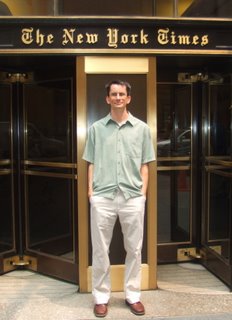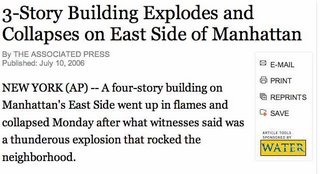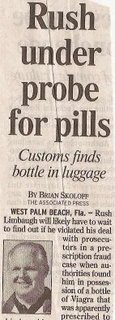 The hiatus is over, and it's time to get back to blogging, among other things.
The hiatus is over, and it's time to get back to blogging, among other things.My family went to New York and Montreal for our summer vacation. One of the highlights of the trip was a visit inside The New York Times.
The bulk of this tour, of course, was walking around large rooms full of desks and computers, but it was fascinating to see the nerve center of one of the world's most important newspapers. We visited the boardroom, which is lined with autographed photographs of the famous people who have visited through the decades. We strolled the halls decorated with the seemingly countless Pulitzers the paper has won. And we saw some familiar names on the schedules for the Metro copy desk.
Even my 6-year-old son was impressed. Thanks to Arlene Schneider and Don Hecker at the Times for making this such a memorable part of our trip.








